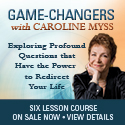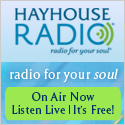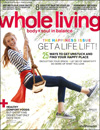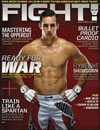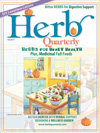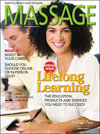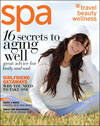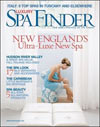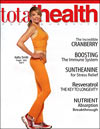UPDATE Editor's note: The original source of this list was James Deacon's Reiki Pages.Found this treasure in an unlikely place -- a comment posted to
this article in the Hattiesburg American in Mississippi. Many thanks to the person (identified only as "moelle") who posted this list of articles, nearly all of them from scientific journals:
Alandydy, P. (BSN, RN,,CNOR), Alandydy, K . (BA) [1999] Using Reiki to support surgical patients. Journal of Nursing Care Quality. Apr; vol 13, no 4, pp 89-91.
Algarin, R. [1995] Using Reiki as a harm reduction tool and as a stress management technique for participants and self. Northeast Conference: Drugs, Sex and Harm Reducation Conference Syllabus, [1995], Harm Reduction Coalition and the Drug Policy Foundation, the ACLU AIDS Project and the City University of New York.
A RK, Kurup PA. [2003] Changes in the isoprenoid pathway with transcendental meditation and Reiki healing practices in seizure disorder. (Department of Neurology, Medical College Hospital, Trivandrum 695-003, Kerala, India). in Neurology India. 2003 Jun; vol 51, no2, pp211-4.
Author Unknown [?] Autonomic Nervous-System-Changes During Reiki Treatment: A Preliminary Study. The Journal of Alternative and Complementary Medicine vol 10, no 6.
Author Unknown [1997] Reiki: Tapping the unseen self. International Journal of Alternative and Complementary Medicine, vol 15, no 9, pp22-23
Author Unknown [1998] Reiki; a balancing therapy. International Journal of Alternative and Complementary Medicine, vol 16, no 2, pp22-23
Author Unknown [1999] Remedy Brief: Reiki. This Japanese system of energy healing is used for acute and chronic pain. Natural Health - Massachusetts, Sept, p41
Barberis, L., [1996] Reiki: Esoteric therapy or quantum interaction? (Paper presented at:) 3rd European Colloquium on Ethnopharmacolgy - 1st International Conference on Anthropology and History of Health and Disease
Barberis, L., [1998] Reiki healing: No matter nor energy. Just being. (Presented at:) the 12th Continental members’ Meeting of the Scientific & Medical Network, Cortona, Italy.
Barnett, L., & Chambers, M. [1996] Reiki energy medicine: Bringing healing touch into home, hospital, and hospice. Vermont, U.S.A: Healing Arts Press.
Behar, M. [1997] Reiki; bridging tradition & complementary healing techniques. OT Practice; Feb 1997
Brewitt, B., Vittetoe, T., Hartwell, [1997] The efficacy of Reiki hands-on healing: improvements in spleen and nervous system function as quantified by electrodermal screening. Alternative Therapies 1997 July; vol 3 no 4.
Brown, F. [1992] Ancient Reiki accepted at a modern American Hospital. The Journal of Awareness. pp 3,16.
Bucholtz, R. A. [1996] The use of Reiki therapy in the treatment of pain in rheumatoid arthritis. Master's thesis (unpublished), University of Wisconsin, Oshkosh, Oshkosh, Wisconsin, U.S.A.
Bullock, M. (RN BSN), [1997] Introduction to Reiki: A complementary therapy for life. Alternative Therapies in Clinical Practice vol 4, no 2, pp41-43
Bullock, M. (RN BSN), [1997]Reiki: A complementary therapy for life. American Journal of Hospice and Palliative Care, Jan 1997, Vol 14, no 1, pp31-32
Clark, L. [1988] Reiki in a G.P. Practice: A Report based on 29 patients over the period 5.10.99 - 25.7.01. Unpublished.
Dressen L. J. & Singg S., [1997] Effects of Reiki on Pain and selected affective and personality variables of chronically ill Patients. Subtle Energies & Energy Medicine, vol 9, no 1, pp51-82
Engebretson, J. & Wardell, D. [2002]. Experience of a Reiki Session, Alternative Therapies, vol 8, no 2, pp48-53
Gallob R. [?] Reiki: a supportive therapy in nursing practice and self-care for nurses. University of Rochester School of Nursing, Loving Touch Center of East Rochester, NY, USA
Harris, D.(Dip.App.Sc.[Nursing] [UWSN]., B.H.Sc.[Nursing]) [UWSN].,MCN[NSW]., MRCNA.) & James B.H. [?] The Mystery and Meaning of Reiki.
Hartwell, B., Brewitt, Dr. B. [1997] The efficacy of Reiki hands-on healing - Improvements in adrenal, spleen and nervous function as quantified by electro-dermal screening. Alternative Therapies Symposium, Florida 1997. Alternative Therapies, vol 3, no 4, p89.
Hodsdon, W., Mendenhall, E., Green, R., Kates-Chinnoy,S., Wacker, E, & Zwickey, H. The Effect of Reiki on the Immune System. Helfgott Research Institue at the National College of Naturopathic Medicine, Portland, Oregon, USA
Kennedy, P. [2001] Working with survivors of torture in Sarajevo with Reiki, Complementary Therapies in Nursing and Midwifery, vol 7, no 4
Litchfield, G. [1999] Reiki Healing. Journal of Natural Medicine vol 3, no 1, pp3-4
Mailoo, V.J. [2002] A brief introduction to Reiki. British Journal of Therapy & Rehabilitation. May 2002 - vol 9, no 5, pp190-3
Mailoo, V.J.[2001] Reiki to Reduce Anxiety:A Literature Review.Journal of Chartered Physiotherapists in Mental Healthcare. Jun; 18 pp13-17.
Mansour A, Laing G, Nurse J, & Denilkewich A. [1998] The Experience of Reiki: Five Middle-Aged Women in the Midwest, Journal of Alternative and Complementary Therapies; vol 4, no 3, pp211-217
Mansour, A., Beuche, M., Laing, G., Leis A., & Nurse, J. [1999] A Study to Test the Effectiveness of Placebo Reiki Standardization Procedures Developed for a Planned Reiki Efficacy Study, The Journal of Alternative and Complementary Medicine, New York vol 5, no 2, pp153-164.
Miles P. [2003] Preliminary report on the use of Reiki for HIV-related pain and anxiety. Alternative Therapies in Health and Medicine. 2003; vol 9 no 2 p36.
Miles, P. & True, G (PhD).[2003] Reiki: Review of a Biofield Therapy. History, Theory, Practice & Research. Alternative Therapies, Mar/Apr 2003; vol 9, no 2, p67
Milton, G., & Chapman, E., [1995] The benefits of Reiki treatment in drug and alcohol rehabilitation programs. Pathways to healing: Enhancing Life through Complementary Therapies, Conference Proceedings, Sept, 24-25 Canberra: Royal College of Nursing, Australia
Neklason, Zale T. [1987] The effects of Reiki treatment on telepathy and personality traits. Thesis [MS in Counselling] - Calif. State University, Hayward
Nield-Anderson, L. Ameling, A. [2000] The Empowering Nature of Reiki as a Complementary Therapy. Holistic Nursing Practice, vol 14, no 3, pp21-29
Olson, K. & Hanson, J. [1997] Using Reiki to manage pain: a preliminary report. Cancer Prevention & Control, vol 1, no 2, pp108-115. Cross Cancer Institute.
Olson K, Hanson J, Michaud M. [?] A phase II trial of Reiki for the management of pain in advanced cancer patients. Faculty of Nursing and International Institute for Qualitative Methodology, University of Alberta, Edmonton, Alberta, Canada
Pankhurst, J. (RGN, Reiki Master) [?] Thirteen Case Studies to Investigate the Effects of Reiki on the Symptoms of Multiple Sclerosis. The Reiki Research Foundation.
Retzlaff N. [1998] Reiki - the gift of love, healing and wholeness; Nursing Matters Feb,1998
Rivera, C. [1999] Reiki Therapy - A tool for Wellness. Imprint - New York - National Student Nurses Association, vol 46, no 2, pp31-33
Robertson, A.L. [?] Pronounced effects of proper Reiki attunement. American Reiki Master Association Newsletter; vol 1, no 5, p6.
Rosentiel, L. [1991] Hypnosis and Reiki. Journal of Hypnotism, Dec; pp8-10
Sabrina, T. [2000] The Science Behind Reiki - What Happens in a Treatment? UK Reiki Federation
Sawyer, J. [1998]Clinical Exemplars; the first Reiki practitioner in our OR. AORN Journal, vol 67, no3, pp674-77
Schiller R. Reiki: A Starting Point for Integrative Medicine. Alternative Therapies in Health and Medicine.2003; vol 9, no 2, pp20-21.
Schlitz, M. & Braud, W. [1985] Reiki-Plus natural healing: an ethnographic/experimental study. PSI Research, 1985 Sept/Dec vol 4 no 3, pp100-123.
Schmehr R. [2003] Case Report: Enhancing the Treatment of HIV/AIDS with Reik Training and Treatment. Alternative Therapies in Health and Medicine. 2003; vol 9, no 2, p120.
Tattum A., [1994] Reiki - healing and dealing. Australian Nursing Journal.1994 Aug; vol 2, no 2, p3
Thornton, L. [1996] A study of Reiki, an energy field treatment, using Rogers' science. Rogerian Science News, vol 8 no 3, pp14-15
Thornton, L. [1996] A study of Reiki using Rogers' science: Part II. Rogerian Science News, vol 8, no 4, pp13-14.
Thorton, L. [1996] A study of Reiki, An energy field treatment, using Rogers' Science. Rogerian Science News; vol 8, no 1, p3.
Thorton, L. [1996] A study of Reiki using Rogers' Science, Part II. Rogerian Science News; vol 8, no 1, p4
University of Michigan.[?] Reiki Technique Study to Control Chronic Pain in Diabetic Neuropathy.The Department of Public Relations & Marketing Communications, University of Michigan
Van Sell, SL. [1996] Reiki: an ancient touch therapy. Reiki News. Feb. 1996, pp57-59
Wardell D.W.; Engebretson J.[2000] Biological correlates of Reiki Touch healing. Journal of Advanced Nursing, vol 33, no 4, February 2001, pp439-445
Wetzel, W. [1989] Reiki Healing: A Physiologic Perspective. Journal of Holistic Nursing, vol 7, no 1, pp47-54.
Whelan, K. M. & Wishnia, G. S. [2003] Reiki therapy: The benefits to a nurse/Reiki practitioner. Holistic Nursing Practice, vol 17, no4, pp209
Whitsitt, T., [1998] Reiki Therapy Journal of Christian Nursing, vol 15; no 1, pp12-13
Witte D. & Dundes L. [2001] Harnessing Life Energy or Wishful Thinking?: Reiki, Placebo Reiki, Meditation and Music, Alternative and Complementary Therapies, vol 7, no 5, pp304-309












